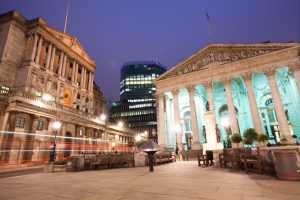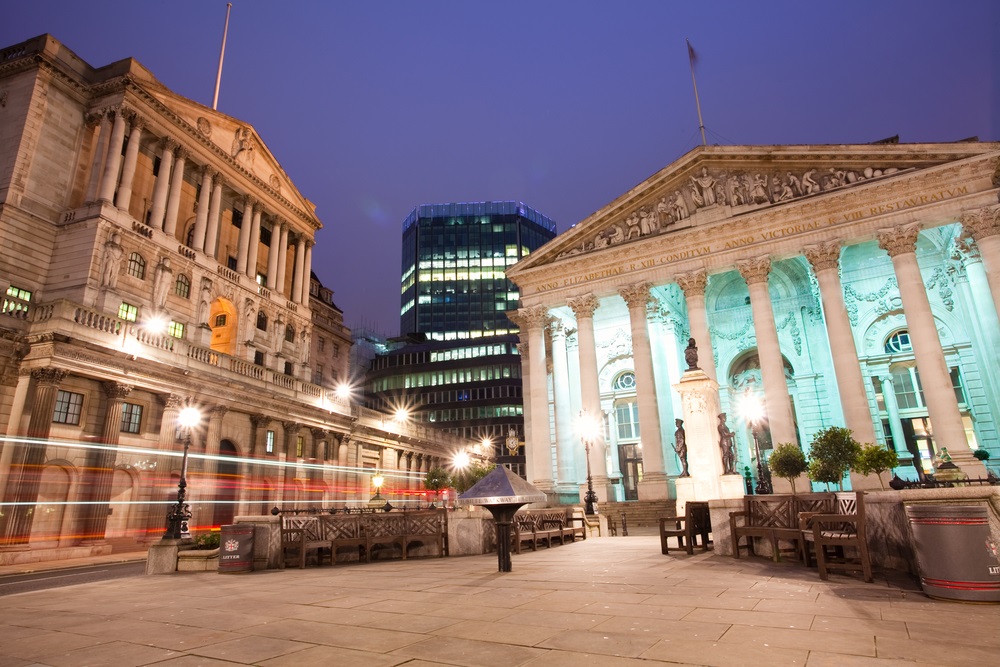The Bank of England has raised interest rates by 0.5% to 3.5% today as it continues its bid to combat high inflation.
 The ninth consecutive increase will be a blow to borrowers in the lead up to Christmas, but at 0.5% the pace of growth is a little slower than last month’s 0.75% hike.
The ninth consecutive increase will be a blow to borrowers in the lead up to Christmas, but at 0.5% the pace of growth is a little slower than last month’s 0.75% hike.
Borrowers on a tracker deal will see their rate climb in line with today’s rise and variable rates may also go up as consequence.
For anyone on a fixed rate deal you won’t be impacted by today’s hike until you come to remortgage.
The Building Societies Association (BSA) has warned borrowers to consider the impact of higher mortgage payments alongside all the other increasing demands on their monthly earnings.
Paul Broadhead, head of mortgage & housing policy at the BSA said it was likely to cost those at the end of a two-year fixed rate who remortgaged to a new similar deal around £289 more a month.
For those on five-year fixed rates, their remortgage was likely to increase their payments by around £244 a month, he said. This was based on £130,000 mortgage over a 25-year term.
Mortgage rate rollercoaster – are prices going up or down?
Although interest rates are rising, fixed-rates have started to fall a little following their ascent during the turmoil which came as a consequence of the mini-Budget.
| Mortgage market analysis (source: Moneyfacts.co.uk) | ||||||
| Average mortgage rates | Dec-17 | Dec-20 | Dec-21 | Jan-22 | Nov-22 | Dec-22 |
| Standard variable rate (SVR) | 4.74% | 4.41% | 4.40% | 4.41% | 5.86% | 6.40% |
| Two-year fixed mortgage | 2.35% | 2.49% | 2.34% | 2.38% | 6.47% | 6.01% |
| Five-year fixed mortgage | 2.88% | 2.69% | 2.64% | 2.66% | 6.32% | 5.80% |
| 10-year fixed mortgage | 3.04% | 2.85% | 2.97% | 2.97% | 5.65% | 5.69% |
| Average rates shown are as at the first available day of the month, unless stated otherwise. Source: Moneyfacts.co.uk | ||||||
In fact, average five- and 10-year fixed rates dropped below the 6% mark in December.
However, as the BSA points out, these rates are still much higher than a year ago and will therefore come as a shock to anyone who took out a mortgage when rates were low and are due to remortgage in the next year.
 The advice for anyone in this situation is to speak to a broker or adviser to get a tailored assessment to suit your circumstances.
The advice for anyone in this situation is to speak to a broker or adviser to get a tailored assessment to suit your circumstances.
Rachel Springall, Finance Expert at Moneyfacts.co.uk, said: “Consumers may breathe a sigh of relief to see fixed mortgage rates have started to drop in recent weeks and hope these rates will fall further.
“However, the cost to secure a new fixed deal is much higher than they may realise, as both the average two- and five-year fixed rates have increased by over 3% during the past year.
“The erratic behaviour in mortgage pricing makes it essential for borrowers to seek advice to scrutinise all the options available to them.”
Advice for borrowers on (or considering) a Standard Variable Rate (SVR)
Standard Variable Rates (SVRs) are the deals on to which you will default when your current rate ends.
These are often the most expensive deals around – as you will see from the Moneyfacts table above, the average rates on these are currently 6.4%.
Some people may be wondering whether, when their deal lapses, they should wait for interest rates to fall before remortgage.
However, before doing this it’s a good idea to see how much you will pay on the SVR.
Springall added: “Those who are sitting on a standard variable rate (SVR) may wish to note the impact the base rate rises will have on their repayments.
“Since December 2021, the average SVR has risen by 2% and, as lenders are traditionally quick to pass on base rate rises, it will impact on someone’s monthly repayments.
“A rise of 0.50% on the current average SVR of 6.40% would add approximately £1,509 onto total repayments over two years.”
What’s the outlook for 2023?
There has been much speculation as to what will happen to interest rates, and indeed mortgage rates, in 2023.
The Bank of England said today it expected inflation to fall ‘sharply’ from mid-2023. Since the interest rate hikes are taking place to combat inflation, this could suggest rates may not rise at such a rapid pace after this time.
Alice Haine, personal finance analyst at Bestinvest, said: “Interest rates are widely expected to peak at about 4.5% next year – with rates potentially falling from there as the lender looks to support the economy through the recession.”
She added: “While a 50bps increase in the base rate might feel like another blow for homeowners already contending with higher borrowing costs following more than a decade of ultra-low interest rates – it could be that mortgage rates have already peaked.”
If you are worried about repayments
Paul Broadhead urged anyone concerned they may not be able to pay their mortgage during these difficult times to be open about their situation and speak to their lender.
“Whilst we have not yet seen an increase in borrowers with mortgage arrears, we remain alert to the economic conditions, which are rapidly changing,” he said.
“It’s worth noting that lenders are sensitive to the rising number of people facing a squeezed household budget and have teams who are well trained and experienced in providing tailored support to those who are struggling.
“Anyone who is worried about their finances and ability to pay their mortgage should therefore get in touch with their lender or a debt adviser as soon as possible.
“They will provide a safe space for a confidential, non-judgmental chat and will do everything possible to help each borrower with options based on their own personal circumstances.”














